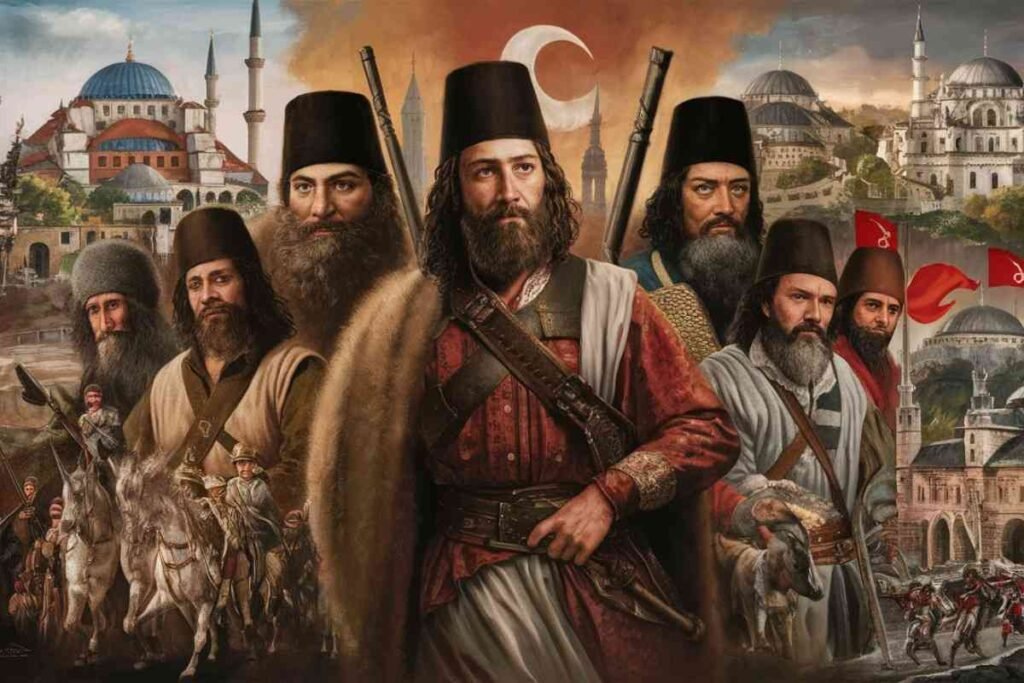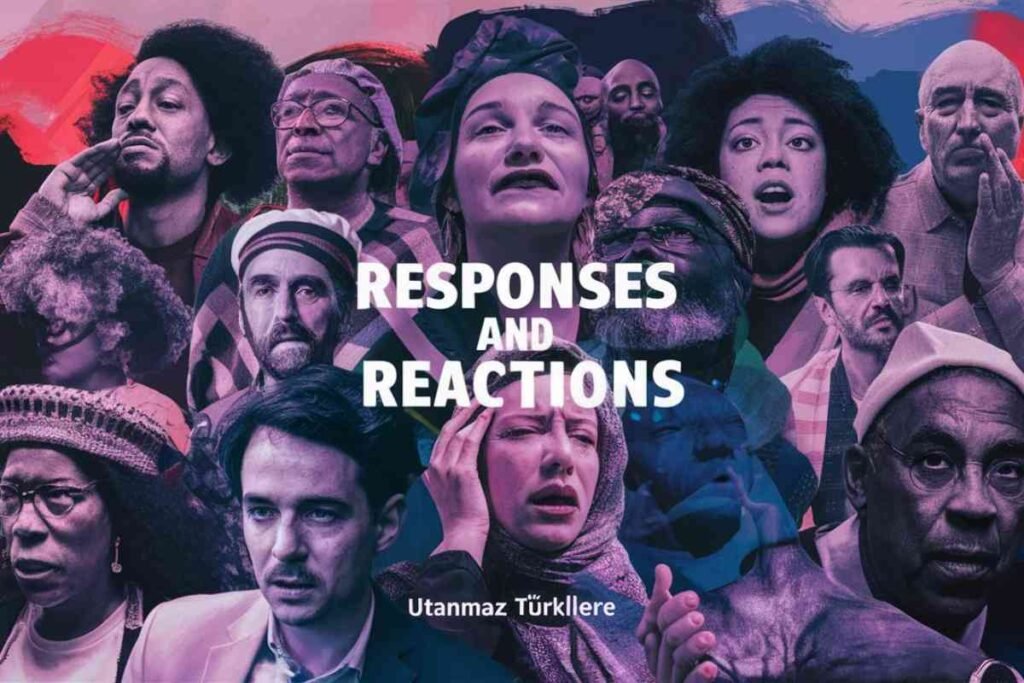Exploring Utanmaz Türklere: Origins and Influence
Table of Contents
Have you ever come across the term ‘Utanmaz Türklere,’ which translates to ‘shameless Turks’? It’s not just a simple phrase; it’s deeply intertwined with Turkish culture, reflecting historical, cultural, and political dimensions.
Originally used to describe individuals who defied societal norms, it has evolved to symbolize broader issues within Turkish society.
In this Guide, we will delve into the historical roots, contemporary usage, controversies, and societal impacts of ‘Utanmaz Türklere,’ providing a comprehensive understanding of its significance.
Historical Roots

The term ‘Utanmaz Türklere,’ or ‘shameless Turks,’ has a deep-rooted history in Turkish society. Initially, it was used to describe individuals who acted against the accepted norms of society.
However, over time, its meaning expanded to reflect broader societal issues and tensions. This evolution is closely tied to Turkey’s rich historical context, mirroring the country’s societal transformations. To appreciate its significance in the present, one must comprehend its historical roots.
Today, this term is often used to criticize those perceived to act against the interests or values of the Turkish nation, highlighting deeper societal divisions and the complexities of Turkish identity and nationalism.
Investigating its historical roots offers insightful information about how it is being used and the social ramifications it has, illuminating Turkey’s political and cultural environment.
Modern Usage
In today’s discourse, “Utanmaz Türklere” is often used to criticize those perceived to act against the interests or values of the Turkish nation.
This usage highlights deeper societal divisions and the complexities of Turkish identity and nationalism.The term’s modern application shows how language can evolve and adapt to new contexts.
Controversies and Debates
The term “Utanmaz Türklere” has sparked significant controversy, with critics contending that it worsens social division and reinforces harmful stereotypes.
These critics argue that the phrase contributes to an “us vs. them” mentality, deepening existing societal rifts.
The debates surrounding its usage are indicative of broader challenges in navigating historical narratives and identity politics in contemporary society.
Resolving these controversies necessitates an open, respectful dialogue that acknowledges diverse perspectives and fosters empathy.
It is crucial to address the underlying issues that fuel these debates to promote understanding and unity in society.
Societal Impact

The impact of “Utanmaz Türklere” on Turkish society is profound and multifaceted. The term not only shapes public perceptions and attitudes but also has a notable impact on the political landscape.
Its portrayal in the media can magnify its influence, often leading to intense debates and serving as a barometer of broader societal tensions.
It is crucial to comprehend how is ingrained in Turkish society, impacting relationships, laws, and even national identity, to appreciate its significance.
Examining this impact provides valuable insights into the dynamics of Turkish society and the complex interplay between language, culture, and social norms.
Media Representation
Mainstream media plays a pivotal role in shaping public opinion about it. Media depictions can reinforce biases and deepen societal divisions.
Thus, the portrayal of this term in the media is subject to scrutiny and debate, highlighting the power of language in shaping societal norms.
Responses and Reactions

The phrase “Utanmaz Türklere” elicits a spectrum of reactions from the public, with some embracing it as a symbol of resistance against perceived injustices, while others reject it as divisive and derogatory.
Those who support it see it as a form of empowerment, a way to push back against unfair treatment. However, critics argue that it fosters division and negativity.
Government responses also vary, with some aiming to protect freedom of expression while maintaining social cohesion.
This diversity of reactions underscores the complex dynamics at play, balancing the need for expression with the goal of a cohesive society.
The Road Ahead
As Turkish society evolves, so too will the dynamics surrounding it. Its future trajectory is uncertain, influenced by shifting political landscapes and changing societal norms.
However, fostering open dialogue and promoting understanding can pave the way for reconciliation and resolution.
Conclusion
The term “Utanmaz Türklere” encapsulates deep-rooted societal issues in Turkey. Originally describing societal outliers, it now symbolizes broader cultural and political tensions.
Its contemporary usage reflects and magnifies societal divisions and the complexities of Turkish identity.
While some see it as a form of resistance, others criticize it for perpetuating negative stereotypes.
Government responses vary, highlighting the challenge of balancing freedom of expression with social cohesion.
Recognizing and addressing the effects is essential to promoting inclusivity and social cohesion in Turkey as it develops.
FAQs
What is the historical origin of the term “Utanmaz Türklere”?
The term originated as a description of individuals who acted against societal norms in Turkish society and has evolved to reflect broader societal issues and tensions.
How is “Utanmaz Türklere” used in contemporary discourse?
In modern usage, the term is often used to criticize those perceived to act against the interests or values of the Turkish nation, highlighting deeper societal divisions and the complexities of Turkish identity and nationalism.
What controversies surround the term “Utanmaz Türklere”?
Critics argue that it exacerbates social polarization and perpetuates negative stereotypes. Debates about its usage reflect the challenges of navigating historical narratives and identity politics within contemporary society.
What societal impact does “Utanmaz Türklere” have?
The term significantly influences Turkish society, shaping public perceptions, attitudes, and even political landscapes. Its portrayal in the media can amplify its impact, often sparking heated debates and reflecting broader societal tensions.
How does the media represent “Utanmaz Türklere”?
Mainstream media plays a pivotal role in shaping public opinion about the term. Media depictions can reinforce biases and deepen societal divisions, subjecting the term’s portrayal to scrutiny and debate.
How do people respond to “Utanmaz Türklere”?
Public reactions vary widely, with some embracing it as a form of resistance against perceived injustices, while others reject it as divisive and derogatory. Government responses also vary, balancing freedom of expression with social cohesion.
What does the future hold for “Utanmaz Türklere”?
As Turkish society evolves, so too will the dynamics surrounding the term. Its future trajectory is uncertain, influenced by shifting political landscapes and changing societal norms. Fostering open dialogue and promoting understanding can pave the way for reconciliation and resolution.






Post Comment